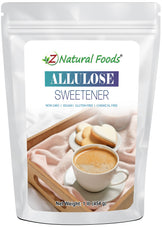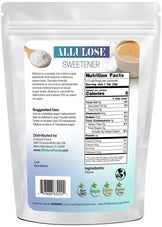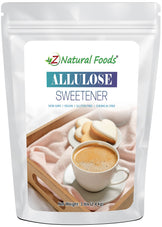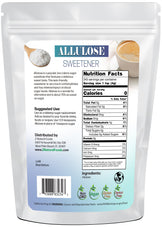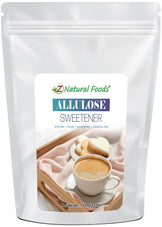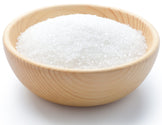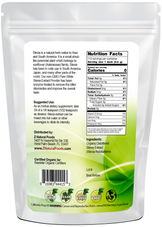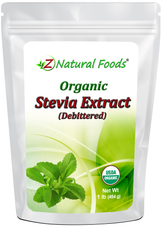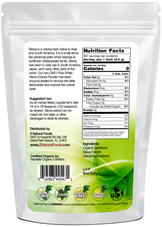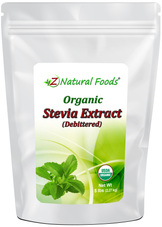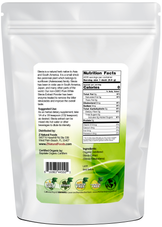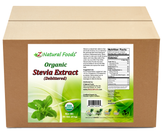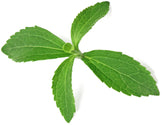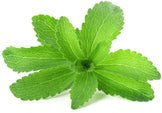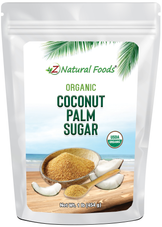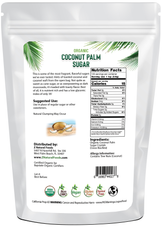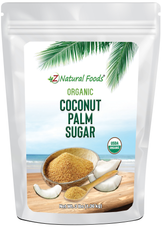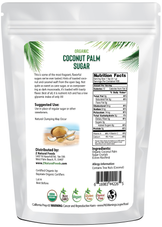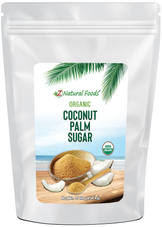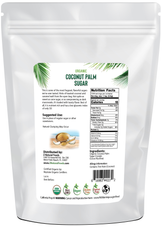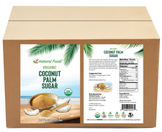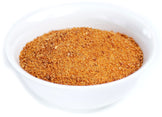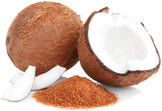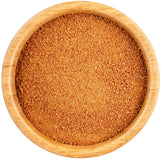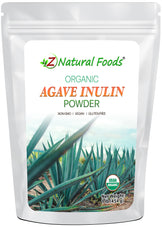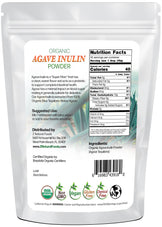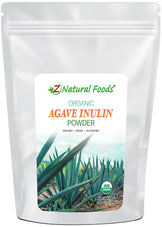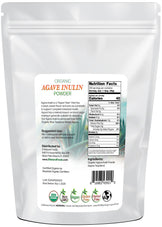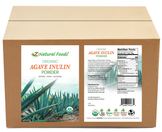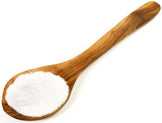Description
Description
Are you looking for a low-calorie sugar substitute that doesn't compromise on taste?
Many look to allulose, a natural sweetener that has a range of potential benefits.
Is allulose good or bad for you?
Allulose is a promising sugar substitute that offers a range of potential benefits without compromising on taste. If you are looking for a low-calorie sweetener that is safe for people with diabetes and may promote gut health, allulose may be a good choice.
While there are many sugar alternatives, ranging from honey to coconut palm and xylitol, allulose is proving to be a top choice among people looking for a trustworthy alternative to regular sugar.
As we get started and review allulose, here are a few helpful articles that you will enjoy learning about other natural sweeteners:
- Which is Better: Stevia or Sugar? (Compared)
- 6 Benefits of Using Coconut Palm Sugar (vs. White & Brown Sugar)
- 9 Benefits of Monk Fruit Extract (Luo Han Guo sweetener)
- Common questions about agave inulin powder (+Keto dessert recipe)
Let’s now get into some science-based details about allulose.
Scientists have discovered these 4 benefits of allulose as a sugar substitute
If you have never used allulose, its look and taste are very similar to regular sugar, although it is slightly less sweet. In fact, most people use it almost exactly like regular table sugar because according to this review of 9 common sugar alternatives, in order to replace 1 tablespoon of table sugar, you can use 1.0 and up to 1.5 tablespoons of allulose depending on your desired level of sweetness.
According to a recent article published in Foods, an international, scientific, peer-reviewed, open-access journal of food science published by MDPI, allulose is a functional ingredient that may be beneficial in reducing obesity, type 2 diabetes, and cardiovascular disease, supported by these very interesting findings:
1. The researchers found that, unlike other sweeteners, allulose has been shown to have minimal impact on blood glucose levels, making it a great option for those with diabetes or those looking to reduce their sugar intake.
To review a very interesting graph that compares the glycemic index of allulose to regular table sugar, honey, coconut palm, and more, go here:
9 Natural Sugar Substitutes Compared (Stevia vs Honey vs Erythritol)
2. One of the unique properties of d-allulose is that it has a sweetness profile that is almost identical to that of sucrose (table sugar) but with only a fraction of the calories. It also does not have the aftertaste or bitterness that is often associated with other low-calorie sweeteners like stevia and aspartame. To review the calories and sweetness profile compared to sugar, go here.
3. Another interesting result identified by these researchers was that allulose may have prebiotic effects, possibly promoting the growth of beneficial bacteria in the gut and potentially leading to improved digestion and overall gut health.
4. Lastly, allulose is produced using natural enzymatic biotransformation technologies, a technique used to expand the diversity of natural products. Experts say this makes it a sustainable and environmentally friendly alternative to other sweeteners that may be produced using chemical processes.
Overall, allulose is a promising sugar substitute that offers a range of potential health benefits without compromising on taste.
If you are looking for a low-calorie sweetener that is potentially safe for diabetics and possibly promotes gut health, you might consider trying allulose to see if it is a good fit for your taste.
To review a list of frequently asked questions we receive about allulose, go here:
Frequently asked questions (FAQs) about Allulose sweetener
To review Allulose and all our other sweeteners, go here:
References:
Han, Y., Zhang, L., & Cao, Y. (2021). Research Advances of d-allulose: An Overview of Physiological Functions, Enzymatic Biotransformation Technologies, and Production Processes. Foods, 10(9), 2186.
Grembecka, M. (2015). Natural sweeteners in a human diet. Rocz Panstw Zakl Hig, 66(3), 195-202.
